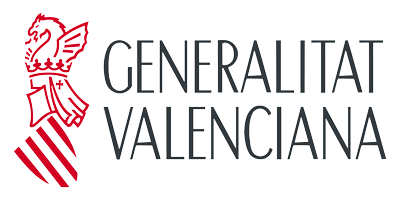PROJECT: PLEDs , DIODOS EMISORES DE LUZ DE PEROVSKITAS DE HALURO CON ESTABILIDAD MEJORADA PARA APLICACIONES TECNOLÓGICAS
«Proyectos de Generación de Conocimiento» y a actuaciones para la formación de personal investigador predoctoral asociadas a dichos proyectos, en el marco del Plan Estatal de Investigación Científica, Técnica y de Innovación 2021-2023.
Name of the research group: Advanced Semiconductor Group (GAS)
Offer description
The purpose of the grants is the training of doctors through the financing of employment contracts, under the predoctoral contract modality, in order for researchers in training to carry out a doctoral thesis associated with a research project financed by grants for I+D+I projects.
Halide perovskites have revolutionized the optoelectronic field in the last decade, especially by the outstanding performance of perovskite solar cells, based among others, in their low radiative recombination. This property, together with the bandgap adaptation possibilities of this family of materials, make them extremely appealing also for the development of perovskite light emitting diodes (PeLEDs). PeLEDs, as their solar cells counterparts, face two main limitations: the Pb content of the best performing systems, and the relatively low long-term stability under working conditions. PLEDs project will focus on the application-oriented development of strategies to increase PeLED stability, and will apply these strategies not just to high performance Pb-based PeLEDs but to Pb-free systems, also studying the influence of fundamental physical phenomena as self-trapped exciton, to the development and optimization of Pb-free PeLEDs. PLED project will apply this research to the use of PeLEDs in technological applications (agriculture, positioning, data communication…), where pulsed light rather than continuum use and lower intensities than for standard illumination applications are required, favoring the long-term stability, which will be analyzed in these particular environments. To reach these objectives, it will be mandatory not just a clear understanding of material and device properties, but also of the specific technological requirements that will influence the stability needs for its application. At the same time, it is necessary remark that the use of Pb-free systems adds an additional degree of complexity in terms of performance and stability, but these limitations, in an initial step, can be reduced focusing on certain important technological applications. This requirement of projecting the study of materials from the very fundamental topics with the goal of achieving a final engineering application, requires a broad range of expertise and abilities difficult to possess all by a single team. Combining the knowledge and the expertise from the two groups, the PLED project will take a step forward towards a new generation of PeLEDs, trying to avoid two of its fundamental problems: lead content and long-term instability. With specific objectives that consist in: (1) Develop Pb-based PeLEDs for the implemented technological applications. (2) Develop Pb-Free based PeLEDs for the implemented technological applications. (3) Determine the specific stability and brightness requirements for different technological applications of LEDs. (4) Investigate Pb-free based PeLEDs with green and blue emission. (5) Determine fundamental characteristics of crystalline phase transformation in Pb-free perovskites determining transition between free and self-trapped exciton emission. (6) Provide a systematic optical, electrical, structural and chemical characterization of the materials and devices developed. (7) Life cycle sustainability assessment and criticality of the most promising configurations for future transfer to market. (8) Recyclability of critical materials. (9) Implement PeLEDs in agriculture applications. (10) Implement PeLEDs in Industrial application for positioning and related information. (11) Develop a prototype using wavelength-multiplexed Visible Light Communication PeLEDs and (12) Study the possible ways of future transfer to market of these applications.
The offer is for a predoctoral research in formation.
Functions to be performed:
- Synthesis of perovskite nanoparticles with and without Pb with enhanced photophysical properties by conventional injection methods in a wide range of visible spectra, as well as the study of the interaction between other inorganic quantum dots and the perovskite matrix.
- Fabrication and characterization of semi-transparent solar cells and LEDs, including white, IR and spin-LEDs, by solution deposition and thermal evaporation techniques.
Required Qualifications
- Degree in Physics, Degree in Chemistry or Degree in Chemical Engineering.
- Master's degree in the field of science or technology, or equivalent, that qualifies him/her to pursue doctoral studies.
The following will be valued as preferential merits:
- Official qualification of B2 in English
- Previous laboratory experience
- Experience in fabrication of optoelectronic devices (perovskites, QD, LEDs).
- Experience in optical and electrical characterization.
- Computer skills
- Official university master's degree (science branch)
Project call: «Proyectos de Generación de Conocimiento» y a actuaciones para la formación de personal investigador predoctoral asociadas a dichos proyectos, en el marco del Plan Estatal de Investigación Científica, Técnica y de Innovación 2021-2023.
Supervisor: Eva Barea (barea@uji.es)
Deadline: 12 of September 2023
IMPORTANT
The official job offer will be published during the month of September on the Universitat Jaume I official website.
https://www.uji.es/seu/info-adm/tao
All those who have submitted a expression of interest and meet the requirements will receive a notice with the link to the official job offer.
If you are interested in applying for this job offer, click here






